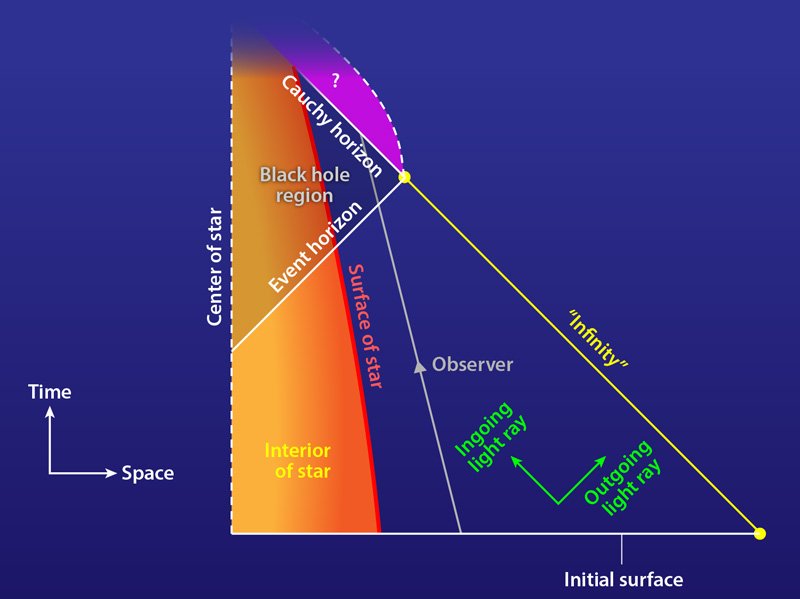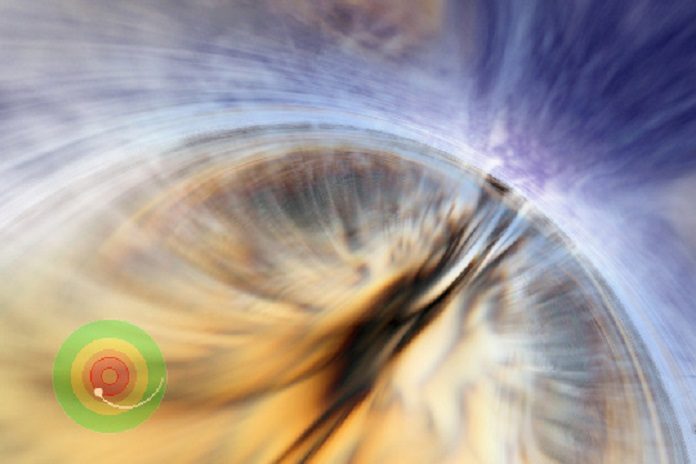Your Past circumstances or choices may have contributed to or led to your present, it is what you do with your presentation that will contribute or lead to your future. In the event that a physicist knows how the universe begins, they can ascertain its future forever and all space.
According to a UC Berkeley mathematician, some types of black holes in which this law breaks down. If somebody somehow happened to wander into one of these generally generous black holes, they could survive, however, their past would be wrecked and they could have a limitless number of conceivable prospects.
UC Berkeley’s postdoctoral fellow Peter Hintz calculations demonstrate that for some particular sorts of black holes in a universe like our own, which is extending at a quickening rate, it is conceivable to survive the entry from a deterministic world into a non-deterministic dark opening.
What life would resemble in a space where what’s to come was unusual is a mystery. Yet, the finding does not imply that Einstein’s conditions of general relativity, which so far consummately portray the advancement of the universe.
Hintz said, “No physicist is going to travel into a black hole and measure it. This is a math question. But from that point of view, this makes Einstein’s equations mathematically more interesting. This is a question one can really only study mathematically, but it has physical, almost philosophical implications, which makes it very cool.”

This conclusion corresponds to a severe failure of determinism in general relativity that cannot be taken lightly in view of the importance in a modern cosmology of accelerating expansion.
Scientists have published a paper describing these unusual black holes last month in the journal Physical Review Letters.
It ought to be conceivable to survive the progress from our reality to the black hole world. Physicists and mathematicians have since a long time ago pondered what that world would resemble, and have swung to Einstein’s conditions of general relativity to foresee the world inside a black hole. These equations work well until an observer reaches the center or singularity, wherein theoretical calculations the curvature of spacetime becomes infinite.
Hintz studies a specific type of black hole – a standard, a non-rotating black hole with an electrical charge – and such an object has a so-called Cauchy horizon within the event horizon. The Cauchy horizon is the spot where determinism breaks down, where the past no longer determines the future. Physicists, including Penrose, have argued that no observer could ever pass through the Cauchy horizon point because they would be annihilated.
As the argument goes, as an observer approaches the horizon, time slows down, since clocks tick slower in a strong gravitational field. As light, gravitational waves and anything else encountering the black hole fall inevitably toward the Cauchy horizon, an observer also falling inward would eventually see all this energy barreling in at the same time. In effect, all the energy the black hole sees over the lifetime of the universe hits the Cauchy horizon at the same time, blasting into oblivion any observer who gets that far.
Hintz realizes that the mechanism does not apply to the expanding universe. Since spacetime is in effect progressively pulled separated, a great part of the removed universe won’t influence the dark opening by any stretch of the imagination, since that vitality can’t travel quicker than the speed of light.
Hintz said, “There are some exact solutions of Einstein’s equations that are perfectly smooth, with no kinks, no tidal forces going to infinity, where everything is perfectly well behaved up to this Cauchy horizon and beyond. After that, all bets are off; in some cases, such as a Reissner-Nordström-de Sitter black hole, one can avoid the central singularity altogether and live forever in a universe unknown.”
Indeed, the vitality accessible to fall into the black hole is just that contained inside the detectable skyline: the volume of the universe that the black hole can hope to see through the span of its reality. For us, for instance, the noticeable horizon is greater than the 13.8 billion light years we can see into the past, on the grounds that it incorporates everything that we will see everlastingly into what’s to come. The quickening extension of the universe will keep us from seeing past a horizon of around 46.5 billion light years.
In that situation, the development of the universe checks the enhancement caused by time expansion inside the black hole, and for specific circumstances, crosses out it completely. In those cases – particularly, smooth, non-pivoting dark openings with an extensive electrical charge, purported Reissner-Nordström-de Sitter black hole – a spectator could survive going through the Cauchy horizon and into a non-deterministic world.
Hintz said, “There are some exact solutions of Einstein’s equations that are perfectly smooth, with no kinks, no tidal forces going to infinity, where everything is perfectly well behaved up to this Cauchy horizon and beyond. After that, all bets are off; in some cases, such as a Reissner-Nordström-de Sitter black hole, one can avoid the central singularity altogether and live forever in a universe unknown.”
“That is upsetting, the idea that you could set out with an electrically charged star that undergoes collapse to a black hole, and then Alice travels inside this black hole and if the black hole parameters are sufficiently extremal, it could be that she can just cross the Cauchy horizon, survives that and reaches a region of the universe where knowing the complete initial state of the star, she will not be able to say what is going to happen. It is no longer uniquely determined by full knowledge of the initial conditions. That is why it’s very troublesome.”
